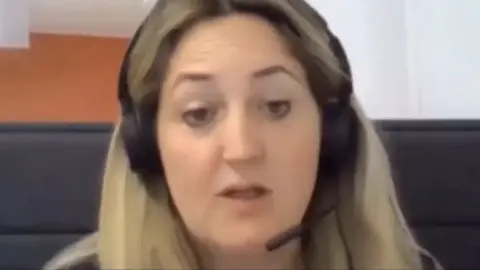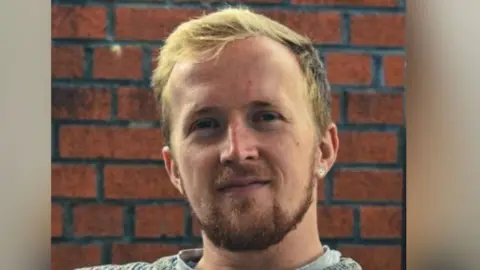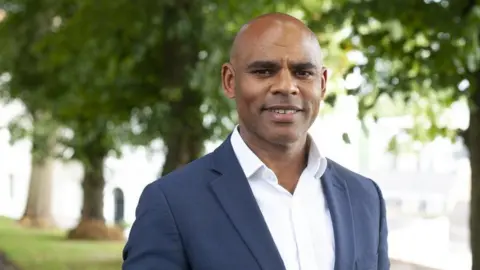Local Democracy Reporters excluded from Bristol mayor's briefings
 Joanna Booth
Joanna BoothLocal Democracy Reporters (LDRs) have been excluded from formal mayoral briefings in Bristol.
It comes as a video went viral of the head of external communications at Bristol City Council querying a reporter's right to ask a question.
LDR Alex Seabrook had quizzed Bristol mayor Marvin Rees over a 9,200-mile trip to give a talk on climate change.
A council spokesman said it was "completely false" to suggest LDRS had been "barred".
He added that "all mainstream local media outlets" are invited to the briefings but that there had been a "long-standing mutual agreement" between the mayor's office and the Bristol Post about personnel attending press conferences.
He explained that whenever they are announced and held "LDRs would not be sent due to the narrow definition of their role as an impartial service".
Two Bristol based LDRS reporters have now been told they will not be invited to future press conferences with the mayor.
Allow X content?
The LDRS is funded by the BBC to provide public service reporting on local authorities. The reporters on the service are based with local newspapers.
The decision to exclude LDRs from the fortnightly briefings has led to a boycott of the meetings by other local media - including the BBC, BristolLive and BristolWorld.
Within hours of being posted, the video clip had been viewed more than 250,000 times on Twitter alone, with widespread support for Mr Seabrook and LDRS.
'Essential ingredient of democracy'
A BBC spokesperson said: "We are deeply disappointed by the decision taken by the Mayor's Office to not allow the Bristol LDR into his fortnightly press conference.
"It is an essential ingredient of local democracy that journalists should be able to ask robust, challenging questions to people in power.
"We have today informed the Mayor that the BBC won't be attending the fortnightly Mayoral briefings until this important issue is resolved."
 Alex Seabrook
Alex SeabrookDuring the exchange, Mr Rees insisted he saw "no irony" in flying to the TED climate change conference in Vancouver in April.
"The argument was that mayors need to be involved in shaping international policy, so there's no irony because I was there shaping international policy," he said.
After Mr Rees spoke, the council's head of external communications Saskia Konynenburg added: "My question is, Marvin was fully-funded by TED to attend this conference, so I couldn't quite understand what the role as an LDR would be in asking that question.
"I think it is probably [ok] from a journalist from a newspaper, but I can't quite see the link to LDR."
The council's response has done little to abate the furore over both its response and Ms Konynenburg's comments.
Leader of the Conservative Group at Bristol City Council, Mark Weston, said the "petulant response" from the mayor's office was "absolutely outrageous and unacceptable".
He added: "The role of the press in our country is to ask awkward and difficult questions of those in power.
"That is one of the ways politicians are held to account for their decision-making and is used to highlight potential acts of hypocrisy or inconsistency."
 Bristol City Council
Bristol City CouncilBristolLive and Bristol Post editor Pete Gavan added it was "vital that the BBC-funded reporters who make up the team locally are able to carry out their remit without interference".
"Inevitably, we will sometimes ask tough questions or raise issues that politicians might find tricky," he said.
"But we believe this is a key function of a free press - and a sign of a healthy democratic landscape."
Matthew Barraclough, head of the BBC's Local News Partnership, which oversees the public interest scheme, also tweeted his support adding the instance "makes the case for the Local Democracy Reporting Service in a nutshell".
"Without LDRs working hard on behalf of local news media and their audiences, these 'comms bosses' can control the narrative."

Follow BBC West on Facebook, Twitter and Instagram. Send your story ideas to: [email protected]
